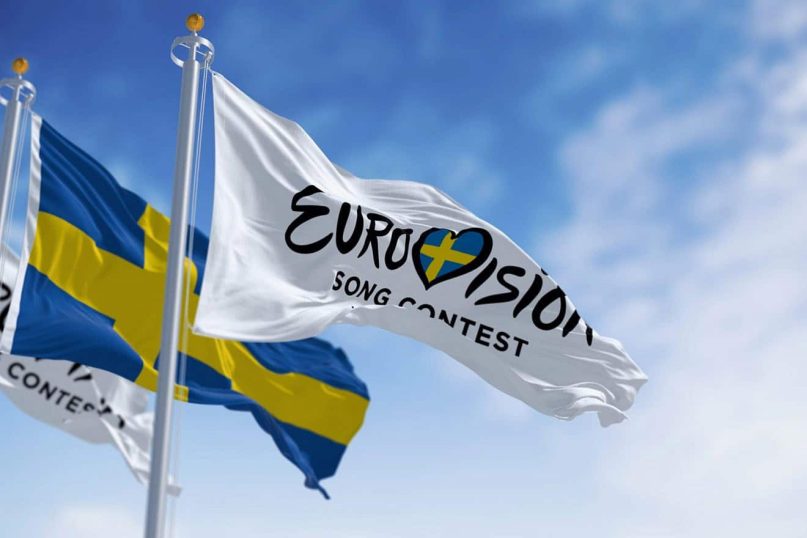
Swedish guest singer Eric Khaled Saade, born to a Swedish mother and Palestinian father from Lebanon, caused an uproar on Tuesday when he appeared on stage at the 2024 Eurovision Song Contest first semifinal at the Malmö Arena wearing a kaffiyeh tied to his left hand, which violated the show’s rules.
The European Broadcasting Union and SVT (Sweden’s national public broadcaster) slammed the move, saying that the stunt was performed without notice.
“He was aware of the rules that apply to you when you stand on the Eurovision stage. During rehearsals, he did not wear the scarf. He put it on without anyone noticing before the live broadcast,” they said.
The statement followed an earlier one immediately sent to the teams after Saade, who represented Sweden at the 2011 competition in Düsseldorf, Germany, performed the provocation.
“The Eurovision is a live TV show,” they wrote. “All the performers are aware of the rules of the competition, and we regret that Eric Saada chose to ignore the non-political nature of the event.”
Last week, the Eurovision organizers said that they would remove any Palestinian flag or pro-Palestinian symbols during the competition.
Officials responsible for securing Israel’s delegation to the Eurovision Song Contest in Sweden are bracing for pro-Hamas provocations targeting Israeli contestant Eden Golan during the musical extravaganza’s second semifinal on Thursday.
Israel Security Agency (Shin Bet) head Ronen Bar visited Malmö last week to approve plans and coordinate with local officials to ensure the security of the delegation.
Golan will perform the song “Hurricane.”
Speaking via video link from Malmö to a Ynet and Yediot Ahronoth “People of the State” conference at Expo Tel Aviv, Golan said that “we cannot at any moment forget what is happening in Israel, I am here on a very important mission and to show what kind of people we are— beautiful and strong.”
Israeli-born singer Tali Golergant advanced to Saturday night’s Eurovision grand final after Tuesday’s performance of “Fighter” in the southern Swedish coastal city.
The 23-year-old, who goes by the mononym Tali, was born in Jerusalem to a Peruvian Jewish father and an Israeli mother. She is representing Luxembourg. The country has returned to the competition after a 31-year absence.
Israeli flags, like those of all participating countries, are allowed in the arena, something that Golergant noted after her performance.
“It was impossible not to notice the flags. Please tell the Israelis that I love them and that we will see each other in the final,” she told Ynet.The Israeli delegation celebrated her qualification at the hotel. Upon hearing that team Israel was rooting for her, Golergant said that it was “very exciting.”







 Southern New England Jewish Ledger
Southern New England Jewish Ledger













